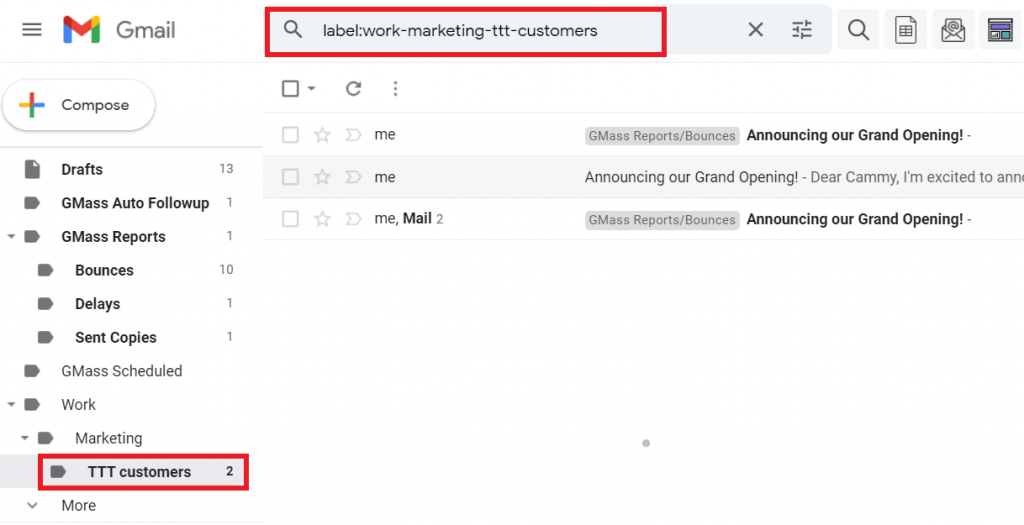What Do I Need To Think About When Purchasing A Cpa Email Database?
When purchasing an CPA (Certified Public Accountant) email list, you must evaluate several key factors to ensure the list is of the highest quality, compliant to legal standards and appropriate to your goals in marketing. What you should be aware of: 1. Data quality and accuracy
Source of information: Examine the origin of the lists. Trustworthy companies typically obtain their data from reliable sources, like trade associations or directories. Avoid lists created using scraping and unreliable methods as they may contain inaccurate or outdated information.
Verification Process: Check that your email list is correct and recently updated. This decreases bounce rates and makes sure you’re getting legitimate, active emails. As CPAs frequently change firms or jobs, you should ask when the list has been up-to-date.
Segmentation & Filters: A CPA list that’s good will include options like segmentation by location (city or state, or even country), specialization in industry (e.g. auditing, taxation and financial planning), experiences years, size of the firm, etc. A targeted targeting strategy that is based on these variables will improve the relevance of your marketing campaigns.
2. Legal Regulations
Data Privacy Laws – Ensure that the email list is compliant with laws and regulations at the national level, such as the California Consumer Privacy Act. Email addresses must be obtained legally with the approval of all participants.
The CANSPAM Act is in compliance: The list used for U.S. commercial email campaigns should be compliant to the CANSPAM Act. The list should provide opt-out methods and avoid misleading contents or subject lines. Non-compliance is punishable by penalties and other legal concerns.
Opt-In Consent: Check that email addresses have been obtained via opt-in consent where recipients have agreed to receive email from third-party marketers. This will increase engagement and reduce spam complaints.
3. Provider Reputation
Conduct a thorough investigation into the reputation of a service. Read reviews, testimonials from customers and reviews to get a feel about what customers who have used the service previously been through. Established companies with a record of success have a higher likelihood to provide accurate, high-quality data.
Transparency. Providers should be transparent about the method by which they collect their data and how often they update it. If the service provider isn’t able to provide a clear explanation of their methodology and the reasons behind it, they should be flagged as a red-flag.
Customer Support: Reliable customer support is important if you need help in modifying your list and troubleshooting or the compliance requirements. A good support system can save you time and effort during the course of your campaign.
4. Cost and Return on Investment
Pricing Models. Different companies offer various pricing models. Some charge per contact while others charge an annual subscription or a flat cost. Examine the costs and expected ROI, keeping in mind the cost and quality of the list.
Refund Policy: Discover whether there is a procedure for refunds or replacements in the event that a number of emails are incorrect or not valid. A guarantee can give you piece of assurance.
Don’t solely focus on cost. Lists that are less expensive may be attractive, but they could have lower bounce rates or low engagement if of poorer quality. Pay for lists which offer data accuracy and segmentation.
5. Ownership and Usage of Data
You can purchase the list once, or purchase it several times. Single-use databases might be less expensive, however you’ll have more flexibility over the long term if you purchase the database.
Shared and exclusive. Exclusive lists: Determine if the email list is only for you or shared with other buyers. Shared Lists: Decide whether the list of email addresses belongs solely to you or if it’s shared with other customers. Shared lists can lead to exhaustion of the audience if they’ve received lots of marketing emails.
6. Data Integration and Format
CRM Compatibility: Ensure the list is in a format compatible with your CRM or email marketing software, such as CSV or Excel. It makes it easy to import and managing your data.
Ease of Use: Evaluate the ease with which data can be categorized and controlled once integrated into your system. An organized list will enable targeting and personalization to be more effective.
7. Ethical Questions
Relevance: Since CPAs are busy, it’s important that they receive information that is pertinent and useful. Avoid sending irrelevant messages that may harm your brand reputation or lead to more spam complaints.
Avoid excessive emailing: Be aware of how often you contact people on your list. Over-communication may lead to complaints about spam and unsubscribes which could harm your sender’s reputation.
The final sentence of the article is:
Prioritize data quality as well as legal compliance and reputation of the company when you purchase CPA lists. Consider legal compliance, data quality, and reputation of the provider when purchasing a CPA list to make sure your investment is worth it. With the right segmentation, you to increase your ROI and engagement. Follow the top rated cpa email list for website guide.
What Should I Look Into Prior To Purchasing An Urgent Care Email List?
Be aware of these aspects before buying an urgent email list. You must make sure that the list you purchase is correct and efficient as well as compliant with the law, and that it is in line with your marketing goals. These are the most important aspects to consider. Quality of data and accuracy
Source of data: Make sure that the service provider has sourced their information from reliable sources such as medical associations or databases for healthcare. Avoid lists made using scraping or other unreliable methods since they could contain inaccurate or outdated data.
Verification procedure: Confirm that the email list is regularly updated and verified. A trusted provider will have an extensive verification process to remove old, invalid duplicate and invalid email addresses. This ensures high deliverability and lowers bounce rates.
Segmentation The list should include options for segmentation by the location (city or state) as well as the size and type of urgent care center, services that are offered (e.g. Diagnostics, Pediatrics) and the roles of decision-makers (e.g. Medical directors, practice owners). Specific lists boost engagement rate and improve relevance.
2. Legal Regulations
Data Privacy Laws: Ensure that the list complies with relevant laws on data protection, like the General Data Protection Regulation (GDPR) in Europe and the California Consumer Privacy Act (CCPA) in the U.S., and other local regulations. This implies that email addresses should only be gathered after consenting to processing and collection.
CANSPAM Act compliance: Your email marketing efforts in the U.S. must adhere to the CANSPAM Act. This means providing a clear opt-out mechanism, avoiding untrue subject lines, as well as include your physical address in email messages. Non-compliance with the law can result in damages to your reputation.
Opt-in Consent: Make sure whether the email addresses in the list have an explicit opt-in consent. This means that they have consented for their email to be sent marketing messages from third party companies. This minimizes the risk of spam complaints and legal issues.
3. Provider Reputation
Established Provider: Choose one that has a demonstrated experience in providing high-quality emails that are compliant. You can assess a service’s reliability by reviewing reviews, testimonials, and case studies.
Transparency. The provider should offer information about the source of data and the frequency of updates. If the data provider cannot provide precise answers, it may indicate poor-quality data.
Support for customers: It’s vital to have a reliable customer service team if you are looking for help with any problems with your list or its customization. A company that is responsive can to help you get the most value out of your list.
4. Return on Investment and cost (ROI).
Pricing models. Email list companies generally offer a variety of pricing options, like flat costs or pay per contact. Pricing models must be compared to your marketing budget, as well as ROI expectations. Balance the cost of the list with the accuracy and quality of the information.
Refund or Replacement Policy: A lot of reliable providers offer a policy of either a refund or replacement in the event that you discover that a substantial number of your email addresses are not valid. Clarify the policy terms before buying.
Value for money – Rather than select the cheapest option consider lists that have precise information or an elaborate segmentation. Investing in high-quality lists will improve engagement rates and increase your ROI.
5. Data Ownership, Usage and use
Make use of the list only once or for a maximum of one time. Multi-use lists are better, especially if your plan is to run an array of outreach campaigns.
Shared with other buyers. Exclusive lists: Determine if the list is only for your business or shared with other buyers. Shared Lists: Determine if the list is exclusive to your company or shared with other buyers. The shared list can cause the recipients becoming tired, as they might receive messages from multiple companies.
6. Integration and Data Format
CRM Compatibility. Make sure your email lists are delivered in formats that work with the software you are using for email marketing or relationship management, like CSV or Excel. This allows for a smooth and quick integration.
User-friendly Ease of Use: Email lists must be simple to manage and segment according to particular parameters. An organized email list allows you to target and personalize your messages.
7. Ethical Considerations
Relevance: Urgent care professionals are often busy, so you must ensure that your content is useful and beneficial. Your message should be tailored to their specific needs. This might include medical equipment, healthcare technology, or supplies that are closely linked to urgent healthcare operations. Inadequate content can damage your reputation and decrease engagement.
Beware of Spam by paying attention to the frequency you send emails. Over-emailing or sending out emails can result in spam complaints and can damage your reputation as a sender.
Conclusion
Pay attention to the quality of data as well as legal compliance and reputation when purchasing an urgent-care email list. Lists must be re-segregated regularly and adhere to data privacy laws. By using a well-targeted, high-quality list and delivering content that’s relevant, you will increase the engagement of your customers and boost the ROI. Take a look at the most popular urgent care email list for blog examples.
